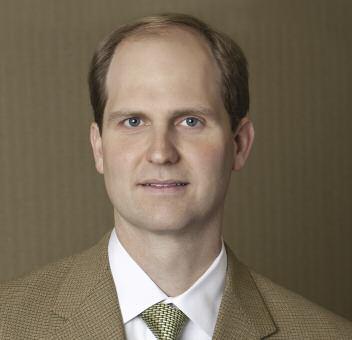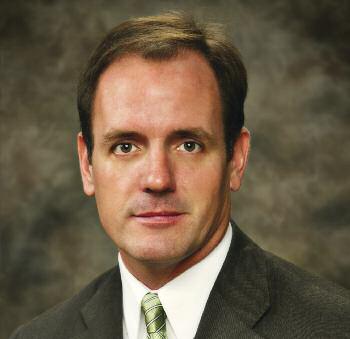The Appellate Corner
| Jurisdiction | Alabama,United States |
| Citation | Vol. 78 No. 3 Pg. 0224 |
| Pages | 0224 |
| Publication year | 2017 |

Wilson F. Green
Wilson F. Green is a partner in Fleenor & Green LLP in Tuscaloosa. He is a summa cum laude graduate of the University of Alabama School of Law and a former law clerk to the Hon. Robert B. Propst, United States District Court for the Northern District of Alabama. From 2000-09, Green served as adjunct professor at the law school, where he taught courses in class actions and complex litigation. He represents consumers and businesses in consumer and commercial litigation.

Marc A. Starrett
Marc A. Starrett is an assistant attorney general for the State of Alabama and represents the state in criminal appeals and habeas corpus in all state and federal courts. He is a graduate of the University of Alabama School of Law. Starrett served as staff attorney to Justice Kenneth Ingram and Justice Mark Kennedy on the Alabama Supreme Court, and was engaged in civil and criminal practice in Montgomery before appointment to the Office of the Attorney General. Among other cases for the office, Starrett successfully prosecuted Bobby Frank Cherry on appeal from his murder convictions for the 1963 bombing of Birmingham's Sixteenth Street Baptist Church.
RECENT CIVIL DECISIONS
From the Alabama Supreme Court
Auto Guest Statute
Hurst v. Sneed, No. 1151067 (Ala. Feb. 3, 2017)
Trial court erred in granting summary judgment to defendant driver's estate, based on operation of auto guest statute (Ala. Code § 32-1-2) in tort action brought by rider. There was substantial evidence that rider's presence was not for exclusive benefit of the driver, and that driver and rider enjoyed a mutual and reciprocal relationship over many years of running errands together to save on gas and vehicle wear and tear, thus creating genuine issue of fact as to each of the three components of the application of auto guest principles under Sullivan v. Davis, 83 So. 2d 434, 436-37 (1955).
Medical Liability; Apparent Authority
Bain v. Northwest Alabama Colbert County Healthcare Authority, No. 1150764 (Ala. Feb. 10, 2017)
Heath (decedent) died on July 8 from aortic aneurysm which went undiagnosed at an emergency room visit to Helen Keller Hospital on June 18. At the ER visit, it was alleged that the ER nurses failed to take a family history on Heath, but the undisputed evidence was that Heath discussed the family history (including Heath's father's death from an aneurysm) with the attending ER physician (Dr. Wigfall, who was under contract with Weatherly, a medical staffing company under contract with HKH). Bain (PR and spouse) sued HKH, nurses and Dr. Wigfall. The trial court granted summary judgment to defendants. The supreme court affirmed. As to the claims against the nurses, the court held that theory of liability had a break in the chain of causation: because there was undisputed evidence that Dr. Wigfall received from Heath the information the nurses allegedly should have obtained from Heath, Bain failed to present substantial evidence demonstrating that the nurses' failure to obtain Heath's family history probably caused or contributed to Heath's death. As to the claims against HKH for the actions of Wigfall (under a theory of "apparent authority"), the court reasoned that (1) Alabama law does not recognize the notion "that a patient may presume that a doctor working in a hospital is an employee unless the patient is told otherwise;" (2) Wigfall's wearing an HKH badge and giving orders to HKH employees went only to Bain's subjective belief of apparent authority, and was not an objective basis to conclude that HKH held out Wigfall as an agent. The court noted that Alabama's rule of apparent authority of doctors in hospitals is more restrictive than Mississippi law and Restatement (Second) of Torts § 429.
Rule 54(B) Certification Improper
Equity Trust Co. v. Breland, No. 1150302 (Ala. Feb. 17, 2017)
A trial court exceeds its discretion in entering a Rule 54(b) certification where "[r]epeated appellate review of the same underlying facts would be a probability."
Mootness
Hasting v. Roberts, No. 1150813 (Ala. Feb. 17, 2017)
Action by attorney against OIDS (Office of Indigent Defense Services) for injunctive relief relating to contract indigency work for attorney's local circuit for the 2015-16 fiscal year became moot once 2016-17 fiscal year began.
Medical Liability; Expert Testimony
Collins v. Herring Chiropractic Center, LLC, No. 1151173 (Ala. Feb. 17, 2017)
Medical malpractice case stemming from chiropractic staff's use of un-thawed cold press, which caused frostbite on plaintiff's knee, fell within the class of cases where expert testimony was not required as to the applicable standard of care, because the conduct fell within those cases "'where want of skill or lack of care is so apparent ... as to be understood by a layman, and requires only common knowledge and experience to understand it....'" Moreover, expert testimony was not needed on issue of causation, because the procuring and application of the cold pack was within the exclusive control of the defendants, and no evidence was presented indicating that Collins contributed to her injuries.
State-Agent Immunity
Ex parte Ingram & Wilkinson, No. 1131228 (Ala. Feb. 24, 2017)
Mother of special-needs student brought action against teacher (Ingram) and aide (Wilkinson) for injuries incurred when student was sexually assaulted by fellow special-needs student. Allegation was that assault occurred because (1) teacher deviated from policy requiring all teachers to accompany all students in transit without exceptions, and (2) aide deviated from policy requiring teacher to accompany students to and from lunch in front of line and requiring aide to accompany in back of line. As to the teacher, substantial evidence supported conclusion that teacher deviated from policy of accompanying students in transit-a policy as to which there were "no exceptions"-and thus rendered teacher's conduct arguably beyond her authority. As to the aide, in this case the aide purportedly deviated from the policy because she faced exigent circumstances in being required to accompany a particular student to the restroom while in transit; the court concluded that the absence of a "no-exceptions" proviso within the policy, even while construing the facts in plaintiff's favor, demonstrated that aide was using her professional judgment in recognizing exigent circumstances, triggering immunity.
Class Actions; Dismissal; Retention of Jurisdiction
Ex parte Caremark RX, Inc., No. 1151160 (Ala. Feb. 24, 2017)
Jurisdiction retained by trial court over...
To continue reading
Request your trial
